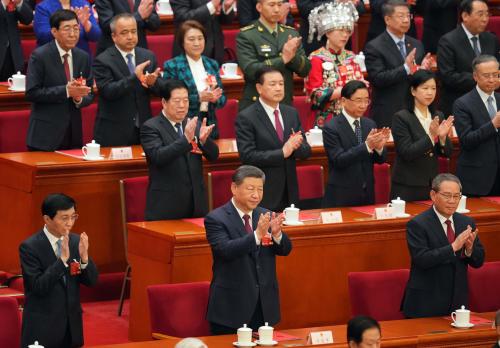

9:30 am EDT - 3:00 pm EDT
Past Event
9:30 am - 3:00 pm EDT
1775 Massachusetts Ave., NW
Washington, DC
With a U.S. Administration still popular across Europe and a new Lisbon Treaty designed to enhance the diplomatic reach of the European Union, transatlantic relations should now be at their best in years. But this is clearly not the case, with the strategic partners often looking in opposite directions. While the United States channels its foreign policy attention on the war in Afghanistan, counterterrorism and nuclear non-proliferation, Europe is turning inward. Despite its ambitions, the European Union has yet to achieve the great global role to which it aspires, or to be the global partner that Washington seeks. Moreover, the Greek financial crisis has raised questions about the very survival of the European project.
On June 2, the Center on the United States and Europe (CUSE) at Brookings and the Heinrich Böll Foundation hosted experts and top officials from both sides of the Atlantic for the 2010 CUSE Annual Conference. Panelists explored critical issues shaping the future of transatlantic relations in the post-Lisbon Treaty era, including Europe’s Eastern neighborhood and the role Russia plays, and the impact of the Eurozone crisis.
After each panel, participants took audience questions.




Jonathan A. Czin
March 28, 2025

Robin Brooks
March 28, 2025

Jamie P. Horsley
March 28, 2025